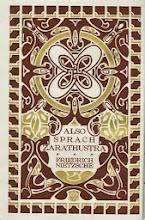I should write a paper about this
Total artificial heart to be ready by 2011: research team
PARIS (AFP) – A fully implantable artificial heart designed to overcome the worldwide shortage of transplant donors will be ready for clinical trial by 2011, the French professor behind the prototype said Monday.
Leading heart transplant specialist Alain Carpentier, head of the European research team behind the project, said the prosthetic heart was ready to be manufactured and should be ready for human use "within two and half years".
Biomedical firm Carmat, a start-up funded by the European space and defence group EADS, France's state innovation agency, venture capital firm Truffle and Carpentier himself, is to produce the heart at a site near Paris.
"We are moving from pure research to clinical applications. After 15 years of work, we are handing over to industry to produce an artificial heart usable by man," Carpentier told AFP.
Several teams around the world are racing to develop a total artificial organ able to permanently replace the human heart, in answer to a worldwide shortage of heart donors estimated at 20,000 each year.
Carpentier developed his prototype in association with a team of aerospace engineers seconded to the project by EADS.
Shaped like a real heart, with the same blood flow rythms, the prototype uses the same technology as prosthetic heart valves developed by Carpentier and already used around the world.
Made from chemically treated animal tissues, these "biomaterials" are designed to avoid rejection by the patient's immune system or blood clotting, a recurrent problem with existing artificial hearts, Carpentier said.
It is aimed at patients suffering after a massive heart attack or with late-stage heart failure, for whom drug therapy, ventricular assistance or heart transplant have failed or are not available.
Up until now, the heart has been tested via digital simulation as well as on animals, with trials revealing "no complications", Carpentier said.
Today's generation of artificial heart is a thumb-sized device implanted in the chest that sucks blood from the heart and pumps it into the aorta, and which has to be recharged every four hours using an external battery.
Surgeons in the United States and Europe have implanted such ventricular assistance devices (VAD) in 220 patients since 2000.
A further type of artificial heart works as a "bridge" until a suitable donor organ can be found.
Rival prototypes for a fully implantable artificial heart include the AbioCor -- developed by US firm Abiomed -- which was used in 14 trials between 2001 and 2004, with patients surviving an average of 5.3 months.
Another US team is working on a prototype called MagScrew Total Artificial Heart, which was trialled on calves in 2005, while researchers in Japan and South Korea are working on similar projects.


<< Home